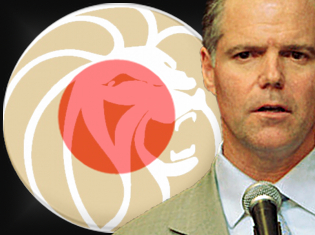 Police in Yokohama, Japan busted an illegal casino last week, resulting in the arrests of three organizers and five customers. The casino, which conducted business under the name Peace, was operating out of the exact same venue in Kanagawa Prefecture that housed the illegal casino Mevius, which police shut down in November. Peace reportedly opened for business the month after Mevius closed its doors and reportedly earned revenue of ¥140m (US $1.4m) in the brief time it was taking wagers. Sankei Shimbun reported the police seized four baccarat tables and a roulette wheel, meaning whoever occupies the space next month will need to bring their own gear.
Police in Yokohama, Japan busted an illegal casino last week, resulting in the arrests of three organizers and five customers. The casino, which conducted business under the name Peace, was operating out of the exact same venue in Kanagawa Prefecture that housed the illegal casino Mevius, which police shut down in November. Peace reportedly opened for business the month after Mevius closed its doors and reportedly earned revenue of ¥140m (US $1.4m) in the brief time it was taking wagers. Sankei Shimbun reported the police seized four baccarat tables and a roulette wheel, meaning whoever occupies the space next month will need to bring their own gear.
Meanwhile, just a day after Las Vegas Sands chairman Sheldon Adelson threw down the gauntlet by vowing to spend up to $10b should he be so lucky as to be granted a precious Japanese casino license, another western casino operator has picked up Adelson’s glove and said ‘game on’. MGM Resorts International CEO James Murren (pictured) now says his company is willing to spend between $5b and $10b to make its Japanese hopes and dreams a reality if legislators draw MGM’s name from the hat.
Speaking at the CLSA Asia-Pacific Markets forum in Tokyo on Tuesday, Murren said MGM would “overinvest early on to ensure, as we have done everywhere else, that we have properties that are built to last and that would stand additional competition.” As with its majority stake in the MGM China joint venture in Macau, Murren said MGM would want to hold at least 51% of any casino partnership with a Japanese firm.
With most analysts predicting Japan could become the globe’s second hottest casino market behind only Macau, it’s not surprising that Murren, Adelson and their ilk are all trying to prove whose, er, wallet is bigger. But consider that $10b is twice the sum these companies have laid out to build some already staggeringly vast casinos in Macau and Singapore, and it makes you wonder what amenities these Japanese casinos plan to offer. Hot and cold running sake?
Adelson’s bluster reportedly isn’t sitting well with many Japanese observers. Sources told Reuters that local politicians were a little put off by Adelson’s humble-brag that he neither needs nor wants a Japanese partner, especially when he went on to question some of these local companies’ ability to hold up their end of the financial commitment. The source said Japan wasn’t preparing to impose foreign capital restrictions but the lawmakers steering the casino legislation through parliament “want Japanese companies to have the opportunity to invest. They want to make sure some money stays in Japan.”
